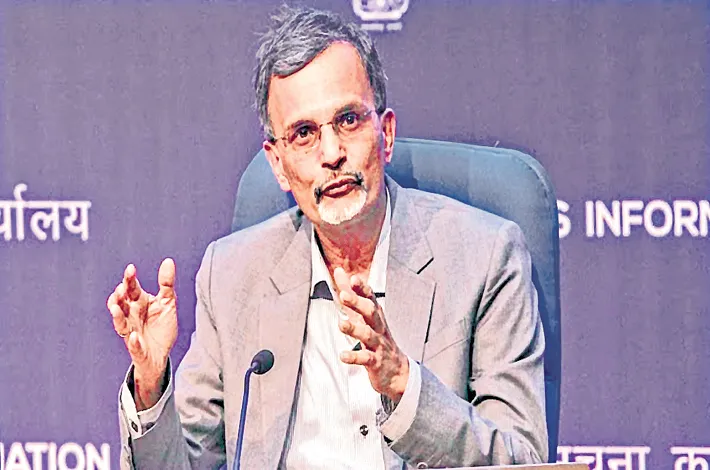CEA Nageswaran flags ‘critical trade-offs’ in energy transition
20-09-2025 12:00:00 AM

He pointed out that India's energy consumption will necessarily keep rising as our per capita incomes rise in the coming years.
PTI kolkata
Chief Economic Advisor (CEA) V Anantha Nageswaran on Friday cautioned that India's path to sustainability and climate goals must not undermine its economic aspirations, stressing the "very crucial and critical trade-offs" in energy transition, fiscal stability, and banking soundness.
Speaking at the Bengal Chamber AGM and Indo-Pacific Economic Conclave, he said India has been "a standout performance among the G20 countries in mitigation," but achieving sustainability goals requires acknowledging difficult choices.
"For a country aspiring to become a developed economy by 2047, energy transition and dealing with climate change must not consign not just India but also other developing countries in the Indo-Pacific and Africa to a state of permanent underdevelopment," he said.
Nageswaran pointed out that India's energy consumption will necessarily keep rising as our per capita incomes rise in the coming years.
He termed the carbon budget allotted to developing nations "arbitrary," saying it ignores the "overdrawn carbon budget by today's developed countries over the last 200 years.
The CEA argued that the Sustainable Development Goals (SDG), framed before the Paris Agreement, should take precedence.
"It is appropriate that both temporarily and logically SDG goals take precedence over climate goals," he noted.
Highlighting fiscal vulnerabilities, he said governments in India currently collect revenues "to the tune of 7.5 lakh crore rupees" from petrol, diesel and coal cess, warning that "the quicker we try to phase out fossil fuels there will be an erosion of tax resources available to our governments. Nageswaran cautioned that retiring thermal power plants could create stranded assets and have implications on the soundness of the banking system, triggering a chain reaction of undercapitalised banks.








